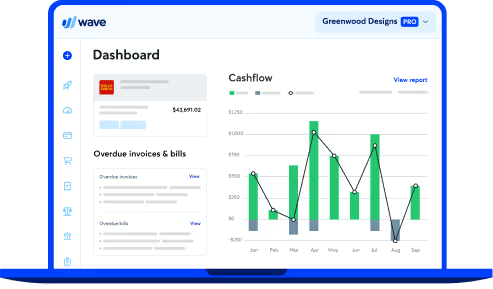
Do small businesses need insurance?
Insurance is a necessity for most small businesses, but figuring out how much—and what type of—small business insurance you need can be confusing.
Small business insurance is so important because it can help get you out of sticky situations, or simply help you meet the requirements to legally run your business. For example, it can help shield your business from the financial loss of an accident, whether it’s something relatively minor or a catastrophic event. Plus, if you’re accused of making a mistake, insurance can help you get legal help to defend your business.
Now that we’ve gone over a few reasons you shouldn’t sleep on small business insurance, let’s answer some common questions business owners have about business insurance—and demystify it once and for all. In this article, we’ll walk you through the different types of business insurance coverage, what type of insurance your business might require, and how you can get the insurance you need. Let’s go!
Is business insurance coverage mandatory?
Rules and regulations around small business insurance vary by industry and by state, so it’s best to check with local regulations to know the requirements in your area.
For example, workers’ compensation insurance is required by law in many states if you have employees. It can help cover workplace injuries and lost wages.
Commercial auto insurance is also usually required in most states for a car, van, or vehicle you use for business. Coverage for deliveries—such as transit to a work site or on-site estimates and consultations—is usually required by law.
Business insurance can also be required to obtain your professional license. For example, construction contractors may need general liability insurance before getting a job, or a property manager might ask for proof of insurance before you sign a lease.
Business insurance may not be required in some states and industries, but it can still give small businesses a significant leg up. Many cleaners, contractors, and other businesses advertise that they’re insured to give their clients confidence that an accident or property damage could be covered.

What happens if I don’t have business insurance?
There can be scary consequences to not investing in business insurance. Without business insurance, you could be forced to pay out of pocket for medical bills, property damage, or legal fees after an accident, injury, or another unexpected event.
Unfortunately, businesses have even been bankrupted after these unexpected high costs. Although certain business structures like limited liability companies (LLCs) and corporations may protect your personal assets against financial loss, your business assets could still be at risk if you’re involved in a lawsuit.
Okay, that’s enough doom and gloom. We’ll use the rest of the article to cover insurance options to protect your business, and let you know where to get small business insurance.
What types of businesses should have insurance?
Most businesses should consider insurance, regardless of location, size, or industry.
As we explained before, not having small business insurance—regardless of business structure—can be a risky business (we wish we could say “no pun intended,” but pun totally intended).
The type of coverage you need will vary depending on the work you do, the value of your business, and other factors. But even seemingly low risk businesses can benefit from coverage if they are accused of making a professional mistake, or if their work property is damaged.
On that note, let’s get into the types of insurance your business should get next.

What types of insurance should I have to protect my business?
If resources only allow you to carry one policy, general liability insurance is the coverage often purchased by small business owners. It’s popular because it can help shield you from the expense of:
- Slip-and-fall injuries: when a non-employee injures themselves at your business and files a lawsuit.
- Property damage: in the event you accidentally damage a client or customer’s property while working.
- Legal fees and defense costs: if you need an attorney to defend your business in a lawsuit after a claim.
- Medical bills: if a visitor to your business gets injured and asks you to pay.
- Reputational harm: in case an employee bad-mouths a client online and the client sues you.
- Advertising injury: if you’re sued for improper image use in your advertising.
The coverage you need also depends on your business activities. Other policies to consider include:
- Commercial property insurance: can help pay replacement costs if your business property is damaged by water, fire, wind, or vandalism.
- A business owner’s policy (BOP): combines general liability and commercial property insurance. It’s often more cost-effective to bundle these two policies than to buy them separately.
- Professional liability insurance: also called errors and omissions (E&O) insurance, it can help protect your business from professional mistakes. This coverage is most common for professional services such as realtors, architects, engineers, accountants, and tax preparers.
Where can I get small business insurance?
Now that we’re on the same page about why small business insurance is so important and what types of insurance you might need, it’s time to answer the question on everyone’s mind: Where the heck can I actually get small business insurance?
One great and easy option is NEXT Insurance. Wave is proud to be working with NEXT Insurance because:
- NEXT specializes in small business insurance
- They’re trusted by over 420,000 small business owners across the US
- You’ll get a free online quote in under five minutes
- You can find answers or file a claim with NEXT anytime via web or app
Get a free, instant quote with NEXT by filling out a quick and easy form on their website.
(and create unique links with checkouts)
*While subscribed to Wave’s Pro Plan, get 2.9% + $0 (Visa, Mastercard, Discover) and 3.4% + $0 (Amex) per transaction for the first 10 transactions of each month of your subscription, then 2.9% + $0.60 (Visa, Mastercard, Discover) and 3.4% + $0.60 (Amex) per transaction. Discover processing is only available to US customers. See full terms and conditions for the US and Canada. See Wave’s Terms of Service for more information.
The information and tips shared on this blog are meant to be used as learning and personal development tools as you launch, run and grow your business. While a good place to start, these articles should not take the place of personalized advice from professionals. As our lawyers would say: “All content on Wave’s blog is intended for informational purposes only. It should not be considered legal or financial advice.” Additionally, Wave is the legal copyright holder of all materials on the blog, and others cannot re-use or publish it without our written consent.


























